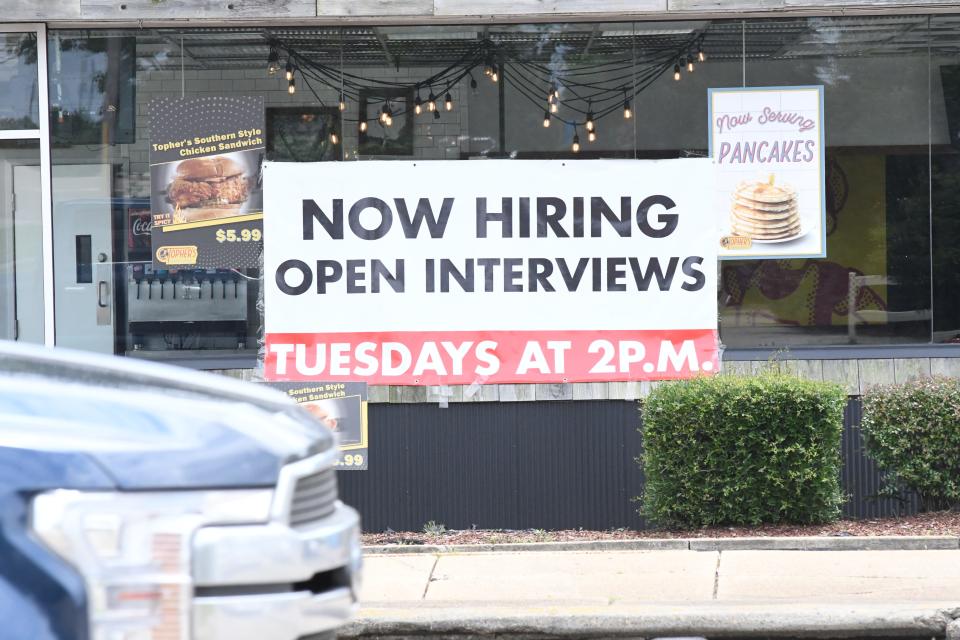Mississippi sees unemployment rate decline. What does that mean?
Signs point to things getting back to normal in the job market in Mississippi, some experts say, and the steadily decreasing unemployment rate proves it.
The Mississippi unemployment rate, which reached an unprecedented 15.7% in April 2020 due to the COVID-19 pandemic, has dipped below pre-pandemic levels.
Preliminary data from the U.S. Bureau of Labor Statistics showed the state's unemployment rate was 5% in November. In February 2020, the month before COVID-19 was declared a pandemic, the rate was 5.8%.
In November, Arizona and Mississippi had the largest month-over-month unemployment rate decreases in the nation at 0.5% each.
LOOKING FOR A NEW CAREER?: Here's U.S. News & World Report's annual list of best job rankings
"During the pandemic, a lot of businesses slowed down and that kind of raised the unemployment rate in the state, but you can see with vaccinations and businesses coming back, that is beginning to come down again," said Dal Didia, an economist at Jackson State University.
In the state's capital city, the unemployment rate declined from 3.5% in October to 2.7% in November. Hattiesburg’s unemployment rate declined from 3.5% in October to 2.6% in November.
Didia said one of the factors contributing to the decline is an uptick in economic activity and a better handle on the COVID-19 pandemic.
"If the omicron variant does not go beyond what we see now, if it doesn't get worse, and we can manage it better, I expect (the unemployment rate) will go down," Didia said.
Didia warned, however, that those who were not actively looking for work were not counted in the unemployment rate, so the numbers can be misleading if this is not taken into account.
Despite the unemployment rate decline, U.S. workers quit their jobs at a record pace in November.
Nationwide, the number of workers quitting jobs increased to 4.5 million in November from 4.2 million in October, slightly higher than the prior record of 4.4 million in September, the Labor Department reported. That means 3% of workers voluntarily left their positions in November.

“The numbers do not surprise me. I think we are facing a watershed moment with perceptions of work-life balance in the United States,” said University of Southern Mississippi Professor of Economic Development Chad Miller in a Tuesday press release. “Demographics, technology, public policy or the lack thereof and the COVID mentality reset are driving the change.”
The number of available positions nationwide was 10.6 million in November, but Miller anticipates that as people return to work, more of the pressure will be relieved.
According to the seasonally adjusted results from a survey of Mississippi employers, there were 900 fewer jobs in Mississippi in November than in October.
“Going forward, I see more people going back to work as wages rise, government assistance lessens and employers make work-quality improvements,” Miller said. “However, labor markets will still be tight, particularly in some sectors.”
Miller said overall, however, the effects of the pandemic on the economy we’re to be expected.
“I am not surprised COVID is continuing to have an impact,” he said. “The pandemic hit during a time of social and political unrest and a changing global economy, so there was a compounded social and economic impact.”
Contact reporter Laurel Thrailkill at lthrailkill@gannett.com or on Twitter.
This article originally appeared on Mississippi Clarion Ledger: Mississippi unemployment rates decline even as more quit jobs

